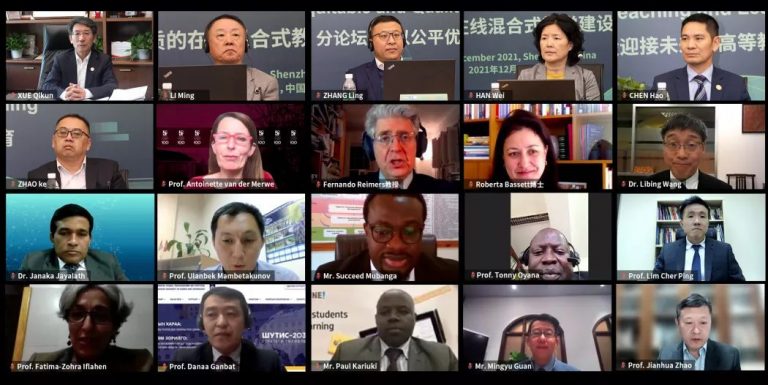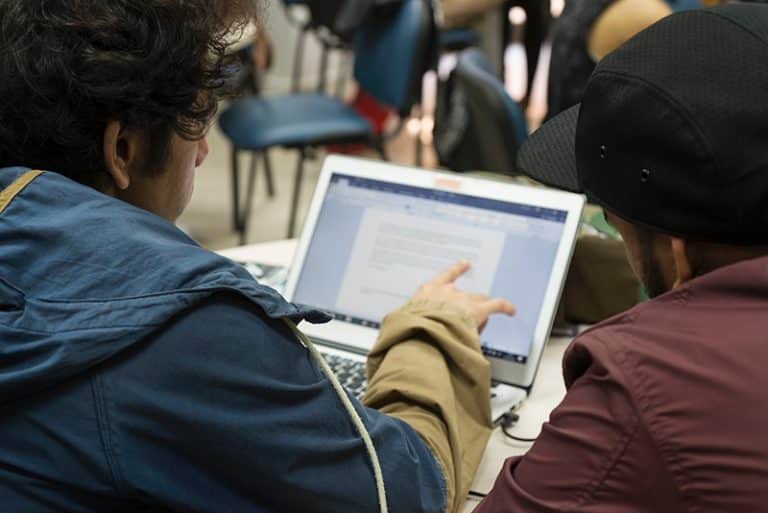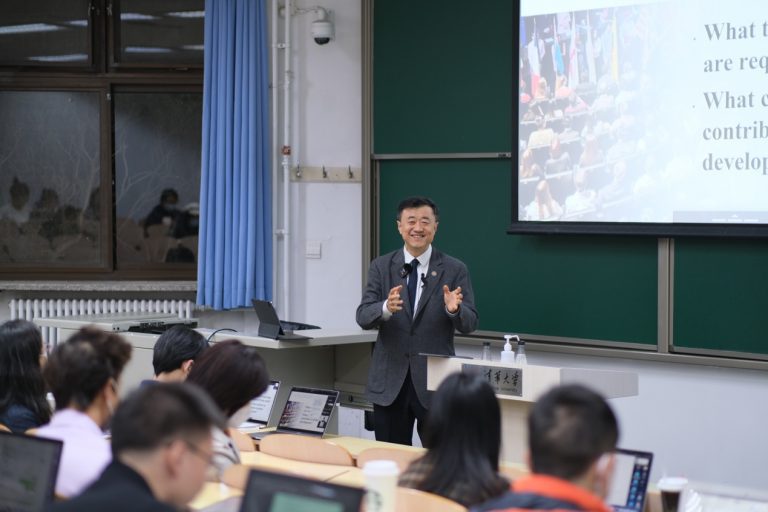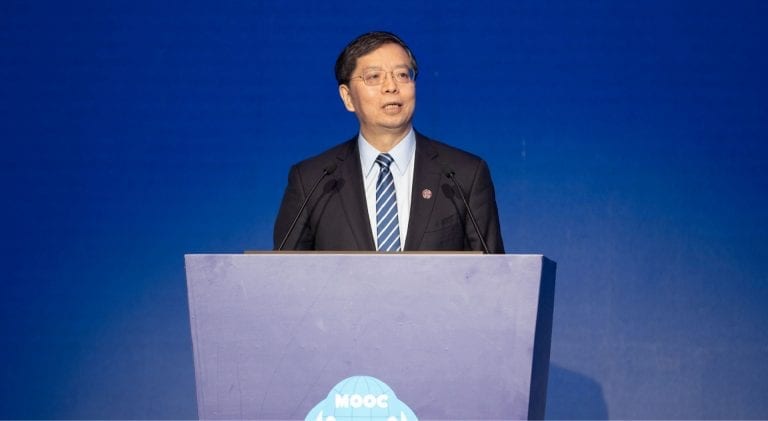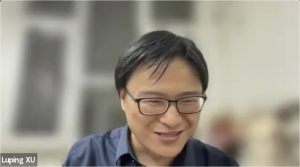
During the Online Education Dialogue 2023, Professor Xu Luping, Nano Biotechnology scientist and Vice Dean of Xingjian College at Tsinghua University (a co-founding member of the Global MOOC and Online Education Alliance), presented a compelling vision of how AI is driving a major transition in higher education. He began by drawing parallels between the evolution of biology and the development of AI, highlighting how both fields have moved from studying individual units to a more systematic approach. This shift, he argued, is crucial for understanding complex systems, whether they are microbial communities in our bodies or the interactions of millions of cells. Here are the key points he made:
- AI as a Tool for Systematic Research: Xu emphasized that AI, with its powerful computational capacity, can be used to analyze complex systems without reducing them to their individual parts. This is particularly relevant in his field of evolutionary biology, where understanding the interactions among thousands of genes is crucial. With AI, researchers can divide a complex system into smaller pieces, analyze each piece using GPU-accelerated computations, and then integrate the results to identify potential connections among millions of cells.
- AI in Scientific Discovery: Xu believes that AI is driving a new scientific paradigm. He sees AI-based science taking the next decades of scientific discovery, from basic cell biology to chemistry, finding new chemical compounds, and understanding complex interactions among society and electric systems.
- AI Driving a Shift in Higher Education: Xu argued that AI is driving a shift in higher education from cultivating problem solvers to problem definers. He suggested that with the support of AI, professors can become class mentors who understand their students better and help them learn more effectively. Similarly, students can become self-leading super learners who adapt their learning path, style, and pace with the help of personal AI systems.
- Challenges and Ethical Issues: Despite the potential benefits of AI, Xu also highlighted several challenges, including the acceptance of new technologies by educators and policymakers, the gap in AI familiarity between educators and learners, and ethical issues such as cheating and cognitive and cultural bias in AI systems.
- AI and Global Effort: Xu emphasized that AI is built upon the collective intelligence of human beings around the world. He stressed the importance of open and global efforts to train the next generation to use AI properly, especially if they are destined to be innovative problem designers.
In the panel discussion, Xu further elaborated on his views. He reiterated that AI is not only driving the transition of learning at an individual level but also at an ecosystem level, even at a global level. He stressed the importance of considering AI in the future planning of higher education, either at a university level or as a global community. He also highlighted the need for the next generation to be trained to be innovative problem designers and problem solvers, not solely, but altogether as a human open intelligence system.

Reflecting on Professor Xu’s insightful remarks, I concur with his view on the transformative role of AI in reshaping jobs and tasks. AI, as he astutely noted, is not a replacement but an assistant in our endeavors, particularly in scientific research and laboratory experiments. It acts as a force multiplier in these contexts, handling vast amounts of data, performing complex calculations, and even simulating experiments. This liberates researchers to concentrate on the conceptual and creative aspects of their work. AI’s contribution to a new scientific paradigm is noteworthy, as it facilitates a shift from basic cell biology to more intricate studies, a transition not limited to biology but observable across various scientific fields. However, we must remember that AI is a tool, not a cure-all. It demands critical thinking from its users, who must scrutinize its outputs, identify their merits and flaws, and consider potential improvements.
The impact of AI is indeed “explosive,” as Xu put it. AI is propelling us from classical problem-solving to problem-discovering, defining, and designing. This profound shift has far-reaching implications for our higher education system. Reflecting on Xu’s presentation of the three-tiered wisdom model that we aspire our students to attain, it’s evident that AI’s emergence is driving a shift in the adaptive landscape of education evolution. The first level, which involves finding classical solutions to classical problems, is increasingly being taken over by AI. This shift challenges our traditional understanding of wisdom and calls for a reevaluation of our educational goals. The second level of wisdom, finding new solutions to classical problems, is where AI acts as a collaborator rather than a competitor. AI’s role in assisting us in this endeavor is evident in various disciplines, most notably in recent developments in language and image processing. The third and highest level of wisdom, defining and redefining problems, remains a uniquely human capability. It is guided by our value system, which enables us to ask deep, meaningful questions and understand what we truly want to achieve.
The question then arises: Is our higher education system adapting quickly and effectively enough to this change? The answer, I assume, is not yet. This should be our current focus today, and it should not be relegated to discussions about “the future of higher education”. Instead, it is a pressing issue that requires our immediate attention and action. The discussion underscores the need for a proactive and thoughtful approach to integrating AI into our educational systems. It also highlights the importance of maintaining a human-centric approach to problem-solving, even as we leverage AI’s capabilities to enhance our problem-solving skills.
Note: “OED Host Reflect” is a series where the OED Host (Enoch Wong, Senior Advisor of Online Education and International Cooperation at Tsinghua University) summarizes messages delivered by speakers during the OED while attempting to make additional contributions to further discussion around the topic. Moreover, the views and opinions expressed in this program are those of the speakers and do not necessarily reflect the views or positions of any entities they represent. Last but not least, you are most welcome to watch the replay of OED at: https://www.xuetangx.com/live/live20230515m002intl/live20230515m002/16741468/34631590


